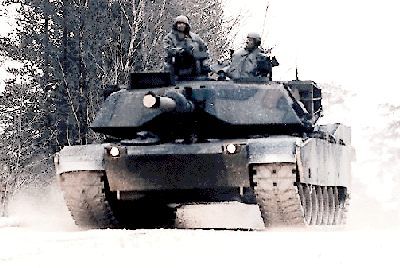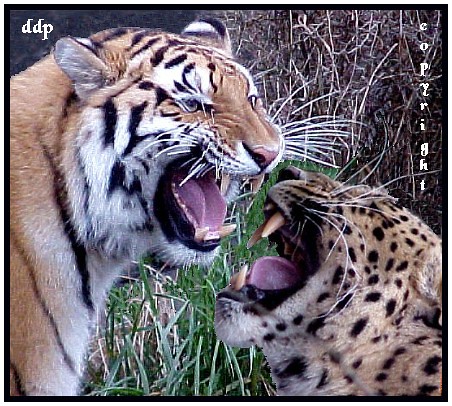For installing Snow Leopard, proceed to Phase II. Installing Snow Leopard. Close VirtualBox and patch it with files from here (32 bit) and here (64 bit) Update: I heard Virtualbox 3.1.4 Beta works out of the box, without patching. I haven't tried that though. We've already shown you how to use Virtualbox to install Mac OS X Snow Leopard and Mac OS X Lion on virtual machines in Windows, since it's great practice for installing Mac OS X on your actual computer. And now that OS X Mountain Lion 10.8 has been officially released, we can finally demonstrate how to do it with Mountain Lion too. Cannot get OSX Snow leopard to install using VB on Suse 13.1. Snow Leopard DVD tests good on a Mac installation I have tried using just the Snow Leopard DVD as the boot device and also using the iBoot image method as the boot device.
It is impossible to install Mac OS X Snow Leopard inside Virtualbox using Windows in the past due to incompatibility issues. Unless you make use of custom modified Mac OS X builds, you may stand a chance in getting the Mac OS X Snow leopard installed inside Windows. But there is no need to wait any longer. Install Mac OS X Snow Leopard inside Virtualbox using Windows is possible. There are guides out there that state that you will need a Mac 10.6.3 disc etc, but there is no need to. I will show you how to install with the retail disc. I don't think there is a need for any particular version. For anyone who claimed that they have failed or get stuck in the installation, it is probably due to the settings in Virtualbox.
Step 1
Preparation
1. Download or get a copy of the Mac OS X Snow Leopard installation CD. I don't think it is appropriate for me to reveal openly where to get a copy. Ermm.
2. Download the iboot software from tonymac forums.
3. Install Virtualbox software. I don't think I need to elaborate on how to do this? Download the Virtualbox Extension pack and install as well. This is optional, but I think it helps to improve the stability and usablity of the USB support when you install Mac OS X in Virtualbox

Reboot your computer so that the settings can be written and your system is updated
Step 2
Setup Phase
Start up the Virtualbox software. Click on 'New' icon and create a new virtual machine. In the first entry, type in any name for this new machine. Select Mac OS X for the 'Operating System' and 'Mac OS X Server' for the Version.
Under General Settings, under Processor tab, use 1 CPU if you experience the Kernel Panic all the time. I find it more stable to run using a single CPU.
The rams will be default at 1Gigs, but if you have a ton of rams, it is recommended you adjust the memory higher. But don't over do it or your own system will suffer from lag.
The next prompt will ask you if you wish to create a new disk or use an existing one, choose create a new disk and the type will be VDI. I prefer fixed size drives then dynamically expanding. Fixed size drives tend to be more stable.
Remember that you are going to install a Mac OS X which requires at least 12 Gigs of basic installation space. So create a large disk, personally I feel that it should be of at least 50 Gigs.
After creating the disc, it will show up as one of the virtual machines you can use on the left side. Now we will need to edit some of the settings. Highlight your virtual machine and click on the 'settings' icon at the top. You are required to make changes to the following.
1. Under the 'System' => Exended features, uncheck the 'Enable EFI'
Install Snow Leopard On Virtualbox
2. Under the 'Display' => Video Memory, increase it to the max and enable 3D (optional )
Iboot Virtualbox
3. Under the 'Storage' => remove the current arrangement and re-attach as IDE and not Sata. Also change the IDE Controller to be ICH6
Sponsored links
4. Audio should be set as Intel HD Audio Uninstall genshin impact pc.
5. Network => Set as Nat but click on the 'Advanced' tab and change it to Intel Pro/1000MT
Step 3
Installing
There are a few ways to mount the disc, but I will state one of the ways. Highlight your Mac OS X virtual machine and Start the virtual machine going. Once it has started, click on 'Devices' => CD/DVD => Choose a virtual CD/DVD file.
Browse from here and navigate to your iboot.iso file and select that file. After that, click on the 'Machine' ,menu and select 'Reset'. The iboot interface should show up. If it does not show up, hit F12 when the virtual machine is just about to start up and hit c to choose to boot off from CD drive.
Now click on the Devices' => CD/DVD => Choose a virtual CD/DVD file. Choose your Mac OS X Snow Leopard.iso file or just point to the drive that has the physical Mac OS X DVD. Click on the virtual machine and Hit F5 so that all commands will be registered in the virtual machine and not on your Windows computer.
The icon should now change to a Mac OS X instead of iboot. Hit enter and it will proceed to install. You will eventually get to the Mac OS installation interface screen. After selecting your languge, click on the 'Utilities' => 'Disk Utility'. You will need to partition your drive.
At this phase of the installation, you can follow the previous guides on how to install the Mac OS X onto a normal computer and finish off with the installation. The only difference will be that when you need to eject the installation disc so that you can insert the iboot disc, simply mount and unmount the iso via the Virtualbox software.

Reboot your computer so that the settings can be written and your system is updated
Step 2
Setup Phase
Start up the Virtualbox software. Click on 'New' icon and create a new virtual machine. In the first entry, type in any name for this new machine. Select Mac OS X for the 'Operating System' and 'Mac OS X Server' for the Version.
Under General Settings, under Processor tab, use 1 CPU if you experience the Kernel Panic all the time. I find it more stable to run using a single CPU.
The rams will be default at 1Gigs, but if you have a ton of rams, it is recommended you adjust the memory higher. But don't over do it or your own system will suffer from lag.
The next prompt will ask you if you wish to create a new disk or use an existing one, choose create a new disk and the type will be VDI. I prefer fixed size drives then dynamically expanding. Fixed size drives tend to be more stable.
Remember that you are going to install a Mac OS X which requires at least 12 Gigs of basic installation space. So create a large disk, personally I feel that it should be of at least 50 Gigs.
After creating the disc, it will show up as one of the virtual machines you can use on the left side. Now we will need to edit some of the settings. Highlight your virtual machine and click on the 'settings' icon at the top. You are required to make changes to the following.
1. Under the 'System' => Exended features, uncheck the 'Enable EFI'
Install Snow Leopard On Virtualbox
2. Under the 'Display' => Video Memory, increase it to the max and enable 3D (optional )
Iboot Virtualbox
3. Under the 'Storage' => remove the current arrangement and re-attach as IDE and not Sata. Also change the IDE Controller to be ICH6
Sponsored links
4. Audio should be set as Intel HD Audio Uninstall genshin impact pc.
5. Network => Set as Nat but click on the 'Advanced' tab and change it to Intel Pro/1000MT
Step 3
Installing
There are a few ways to mount the disc, but I will state one of the ways. Highlight your Mac OS X virtual machine and Start the virtual machine going. Once it has started, click on 'Devices' => CD/DVD => Choose a virtual CD/DVD file.
Browse from here and navigate to your iboot.iso file and select that file. After that, click on the 'Machine' ,menu and select 'Reset'. The iboot interface should show up. If it does not show up, hit F12 when the virtual machine is just about to start up and hit c to choose to boot off from CD drive.
Now click on the Devices' => CD/DVD => Choose a virtual CD/DVD file. Choose your Mac OS X Snow Leopard.iso file or just point to the drive that has the physical Mac OS X DVD. Click on the virtual machine and Hit F5 so that all commands will be registered in the virtual machine and not on your Windows computer.
The icon should now change to a Mac OS X instead of iboot. Hit enter and it will proceed to install. You will eventually get to the Mac OS installation interface screen. After selecting your languge, click on the 'Utilities' => 'Disk Utility'. You will need to partition your drive.
At this phase of the installation, you can follow the previous guides on how to install the Mac OS X onto a normal computer and finish off with the installation. The only difference will be that when you need to eject the installation disc so that you can insert the iboot disc, simply mount and unmount the iso via the Virtualbox software.
Due to the fact that 'Shared folders' in Virtualbox do not work for Mac at all, one way to share files between the Virtual Mac and the computer is to create a network file sharing setup and connect to the Windows via IP.
From your host Windows operating system, Press the 'Windows Key + R' and type 'cmd' without the quotes, hit enter to open the command prompt. Type 'ipconfig' without the quotes and hit enter. You will get a listing of IP addresses. Identify the IP that belongs to your computer.
Using the Mac OS X in Virtualbox, you must connect to your Windows Desktop by means of networking. Mac lingering eyebrow powder. Go to the 'Settings' option of the Mac OS X, under 'Sharing', put a tick on enable file sharing.
Click on the Finder, or Desktop and click on the 'Go' option in the menu followed by 'Connect to Server'. Key in your IP into the box as follows.
Mac Os Cheetah Virtualbox
You may get a prompt asking you which account, password etc. This is the folder that you have set to share in your Windows computer. If you did not enable sharing at all in your Windows computer, you won't be able to connect your Virtualbox Mac OS to your Windows.

